Udayana University Promotes Innovation in Plant Breeding and Sustainable Organic Agriculture
Denpasar, October 29, 2025 — The Faculty of Agriculture, Udayana University (UNUD) held a Guest Lecture and Workshop titled “Innovation in Plant Breeding and Organic Rice Cultivation for Sustainable Agriculture” at the Faculty of Agriculture, Sudirman Campus. The event began with a national anthem and a prayer, followed by opening remarks from the Chairman of the Committee, Dr. Ir. Gede Wijana, M.S., and the Dean of the Faculty of Agriculture, I Putu Sudiarta, S.P., M.Si., Ph.D., who officially inaugurated the event.
The program was attended by faculty members, lecturers, and students from several universities, including the Faculty of Agriculture and Business, Dwijendra University; Faculty of Agriculture and Business, Mahasaraswati University; Faculty of Agriculture and Engineering, Panji Sakti University; Faculty of Science and Technology, Tabanan University; and the Faculty of Agriculture, Science, and Technology, Warmadewa University. The participation of these various academic institutions reflected the growing enthusiasm for advancing plant breeding and sustainable agriculture in Indonesia.
The guest lecture featured Prof. Dr. Muhamad Syukur, S.P., M.Si., Professor of Plant Breeding from Bogor Agricultural University (IPB), as the keynote speaker. In his presentation, Prof. Syukur emphasized the vital role of plant breeding in improving both productivity and quality of agricultural products, as well as its importance in ensuring national food security. He reviewed the historical development of rice varieties from the Green Revolution era to modern varieties such as Fatmawati and IPB 3S, while highlighting the increasing relevance of biotechnology in today’s breeding programs.
He also underlined the importance of collaboration between academia, industry, and students to accelerate the development of new crop varieties that are adaptive to climate change and market demands. Currently, Indonesia has around 1,050 plant breeders, far below the ideal number of 10,000, which presents a significant challenge for the agricultural sector.
The discussion session was lively, with students from participating universities raising questions about varietal protection, climate change challenges, and strategies for strengthening local seed competitiveness. The session concluded with the presentation of a certificate of appreciation to Prof. Syukur by Dr. Ida Ayu Putri Darmawati, S.P., M.Si., Coordinator of the Undergraduate Agroecotechnology Study Program.
After a lunch break, the event continued with a Workshop on “Organic Rice Cultivation for Sustainable Agriculture”, featuring two speakers: Ir. Alik Sutaryat, Director of PT Aliksa SRI Organic Indonesia, and Ida Bagus Gede Arsana, Commissioner of PT Bali SRI Organic. The workshop, moderated again by Dr. Ir. Gede Wijana, M.S., aimed to enhance participants’ understanding of sustainable organic farming practices that are environmentally friendly and socially empowering.
In his presentation, Ir. Alik Sutaryat discussed the importance of managing agroecosystems through the System of Rice Intensification (SRI), which focuses on utilizing natural predators of pests and reducing chemical pesticide use. He also explained PT Aliksa’s achievements in supporting more than 27,000 farmers across 21 provinces through 15 community empowerment programs in organic agriculture.
Meanwhile, Ida Bagus Gede Arsana emphasized that organic farming must be grounded in harmony between humans, nature, and local wisdom — particularly within the cultural context of Bali. According to him, agricultural sustainability is not only measured by yield, but also by soil health, biodiversity preservation, and farmer welfare.
During the group discussion session, participants were divided into four groups to formulate their expectations and future plans for organic agriculture implementation. The groups highlighted issues such as environmental awareness, farmer collaboration, and innovation in developing organic rice products with added value for both health and the economy.
The event concluded with the presentation of certificates to the speakers and moderator, followed by closing remarks from the organizing committee. Through this activity, the Faculty of Agriculture, Udayana University hopes to strengthen academic collaboration across universities and promote innovation in plant breeding and organic agriculture toward a more sustainable future for Indonesia’s farming sector.
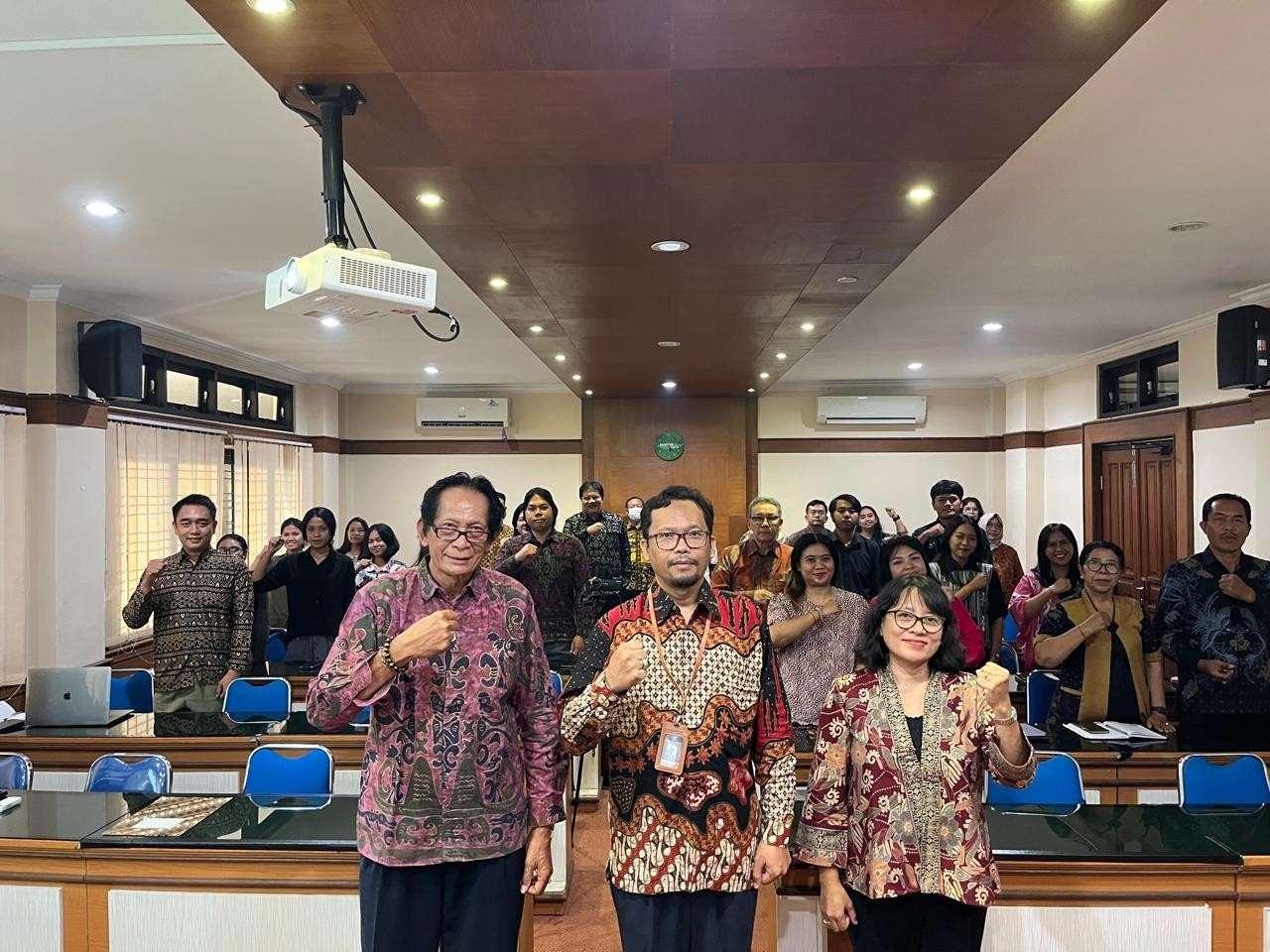
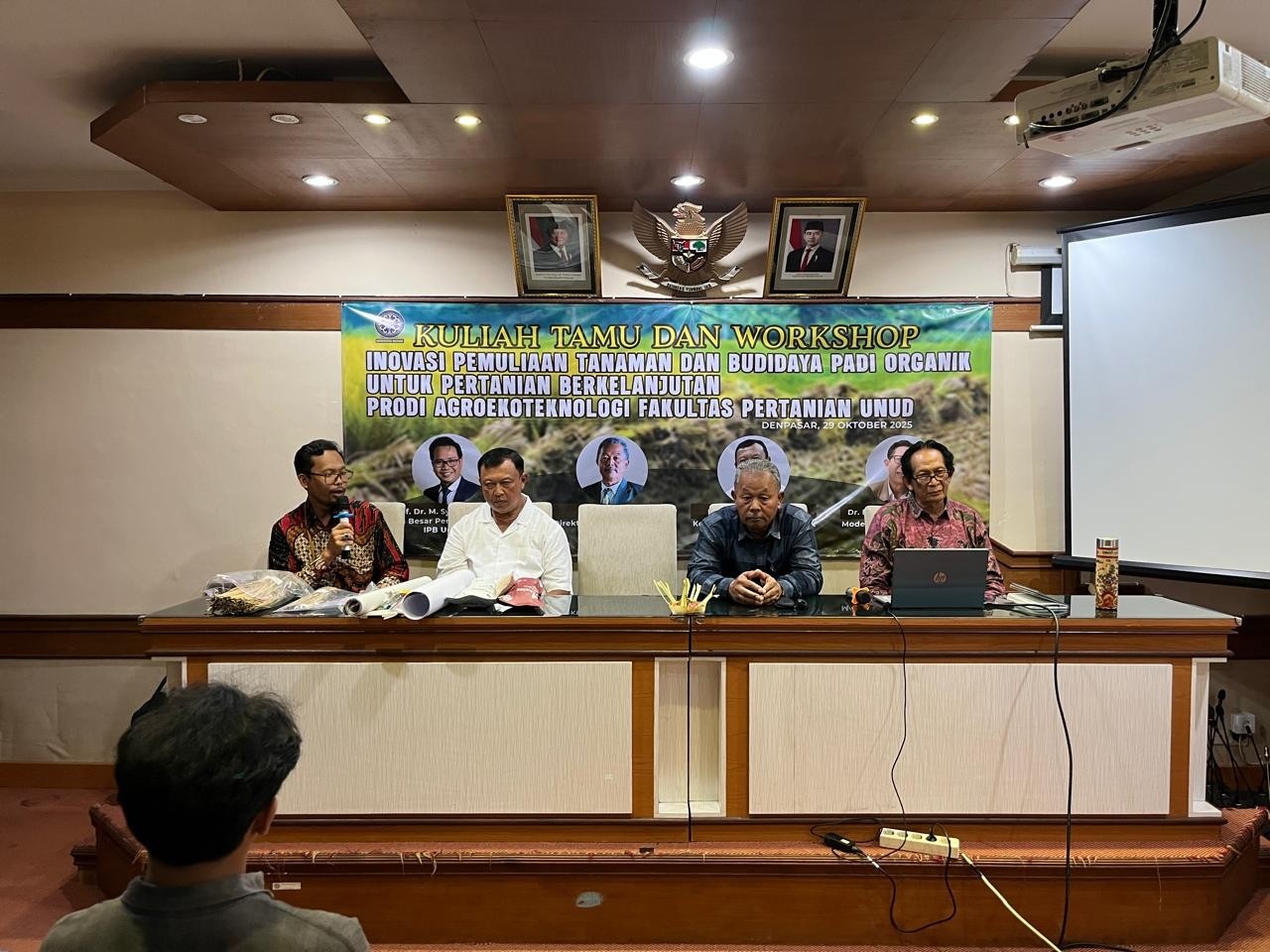
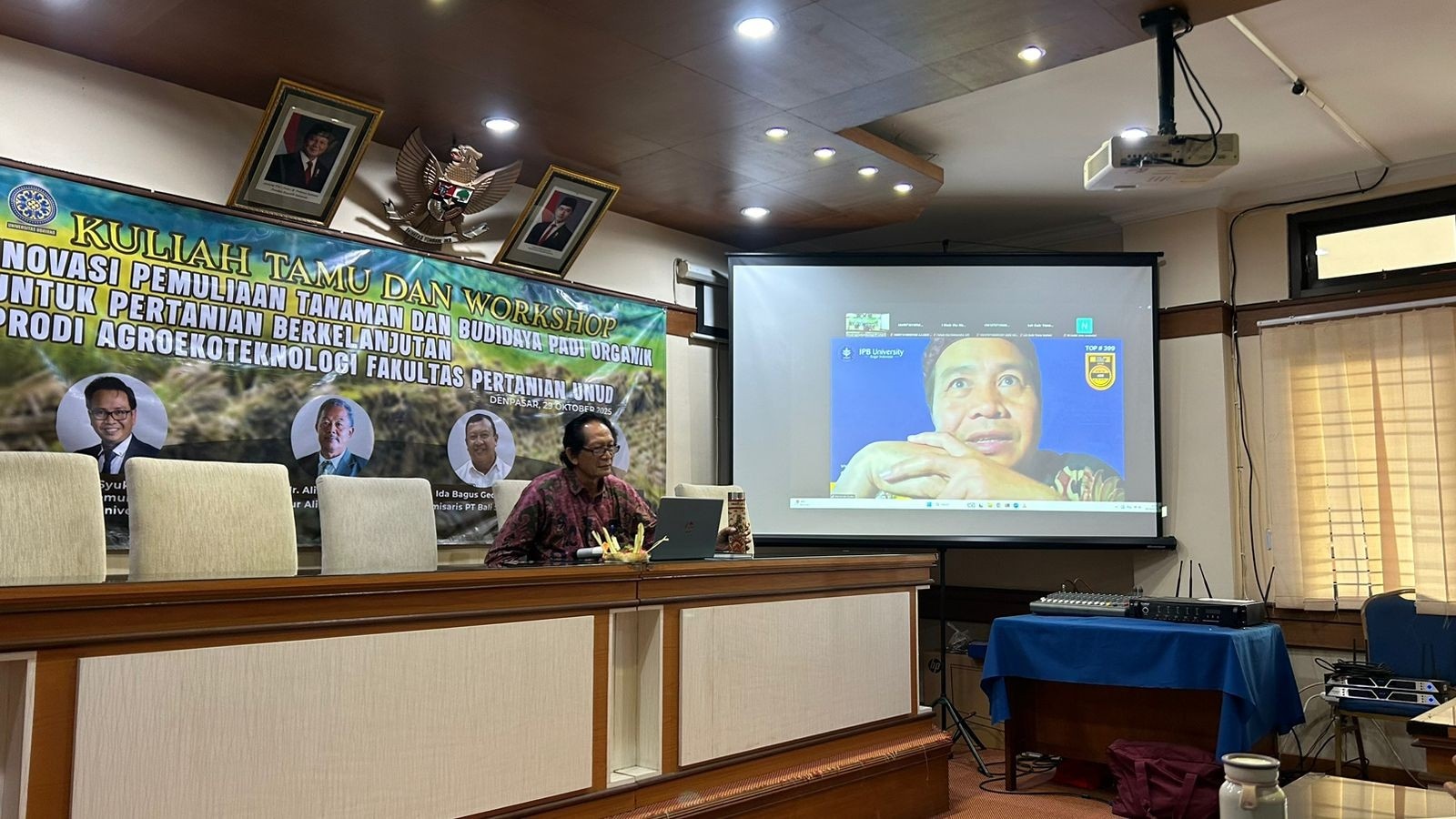
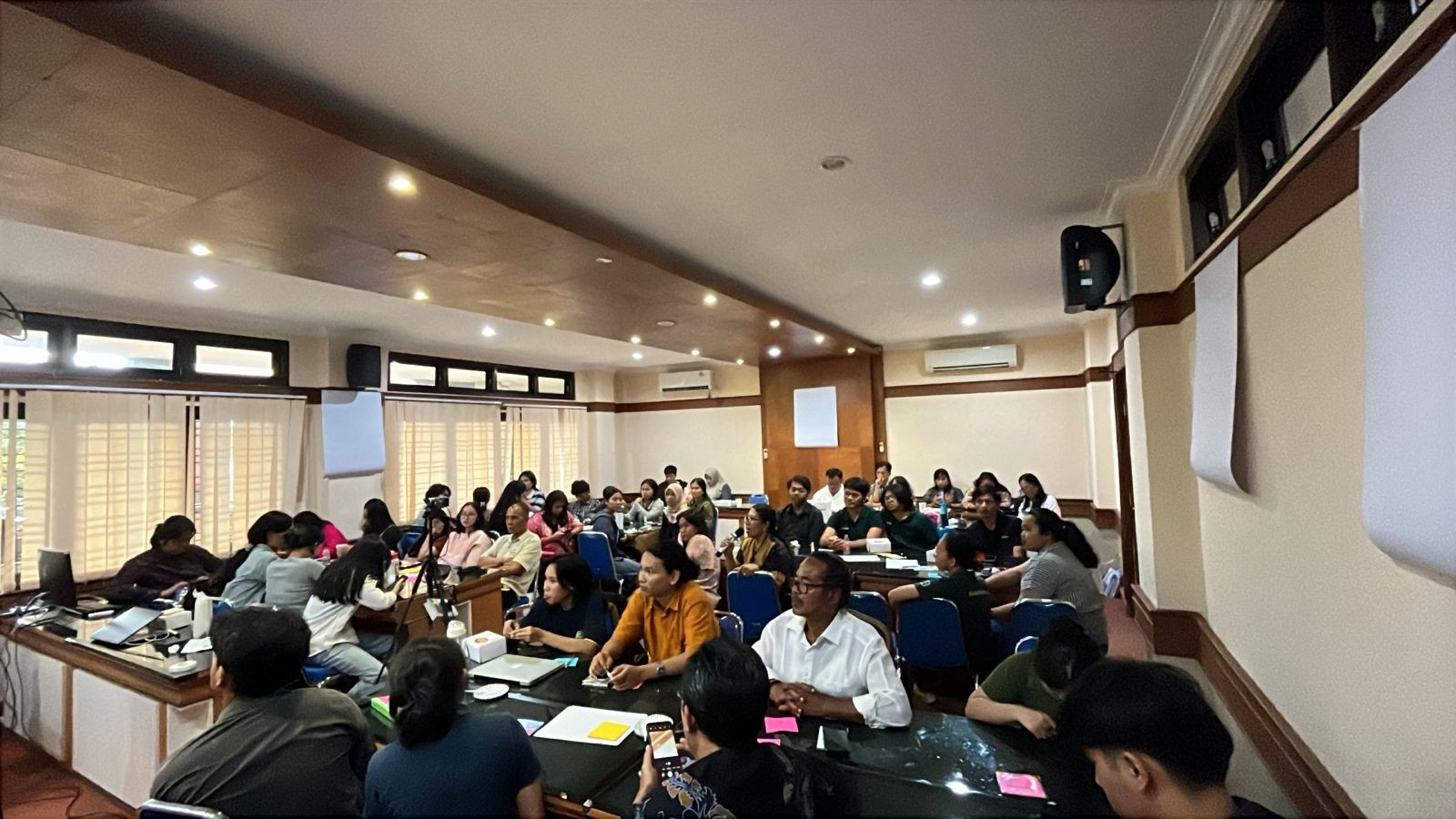
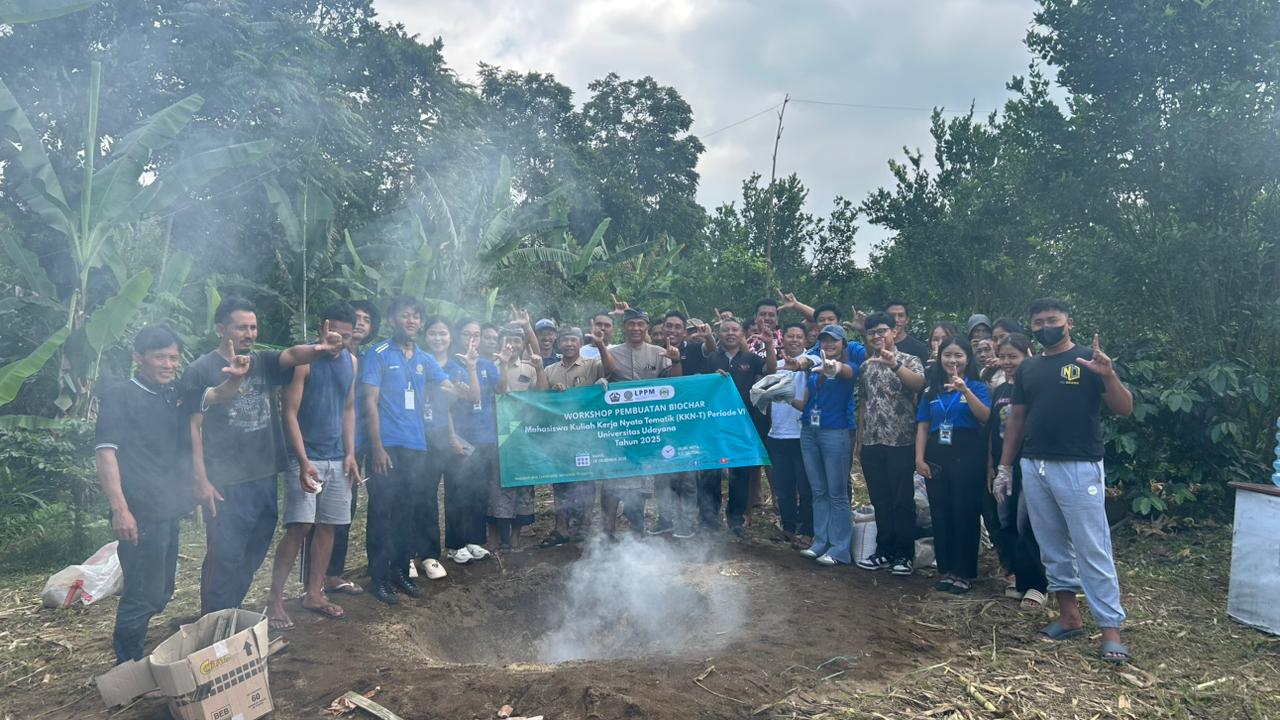
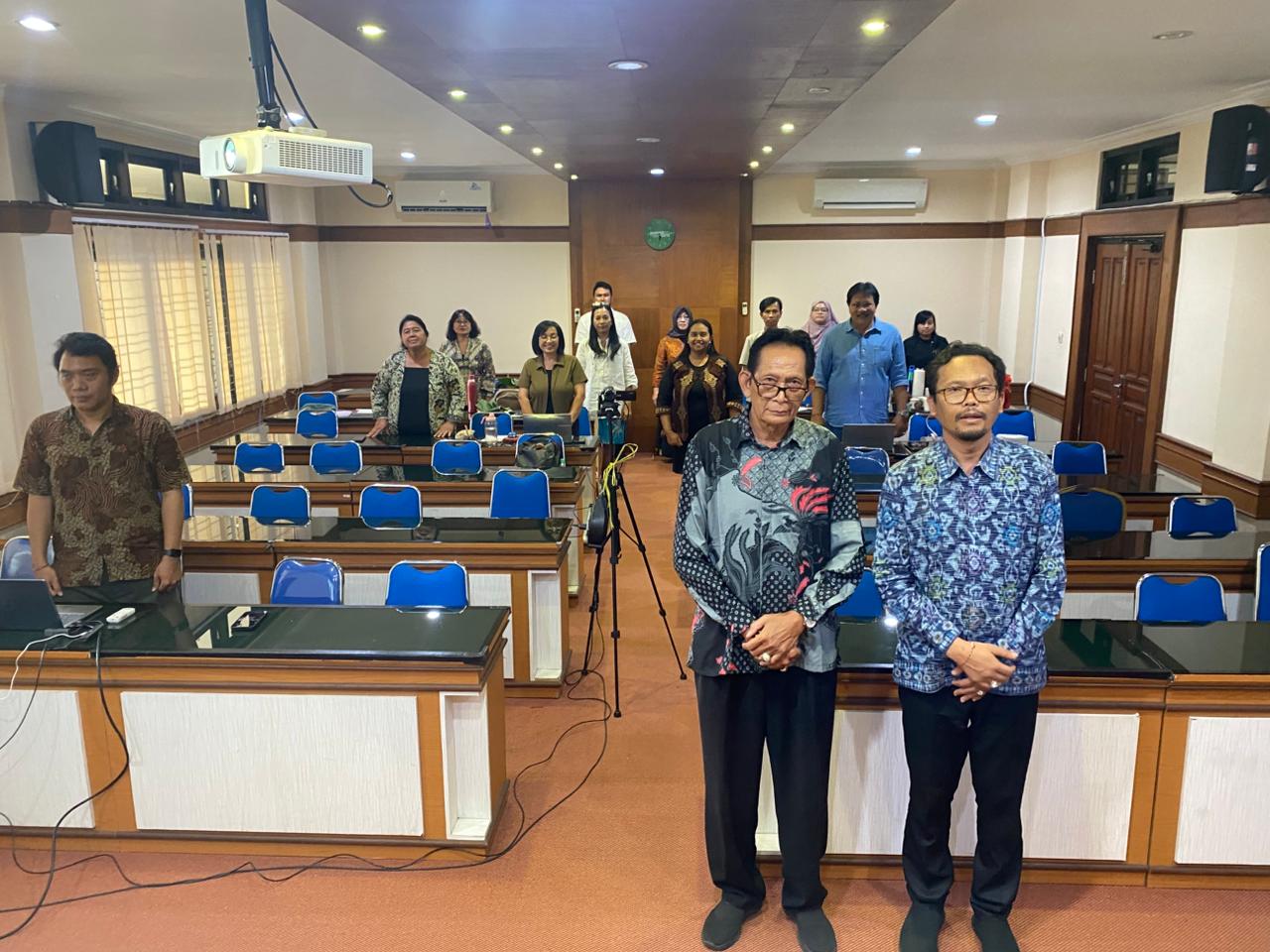
UDAYANA UNIVERSITY